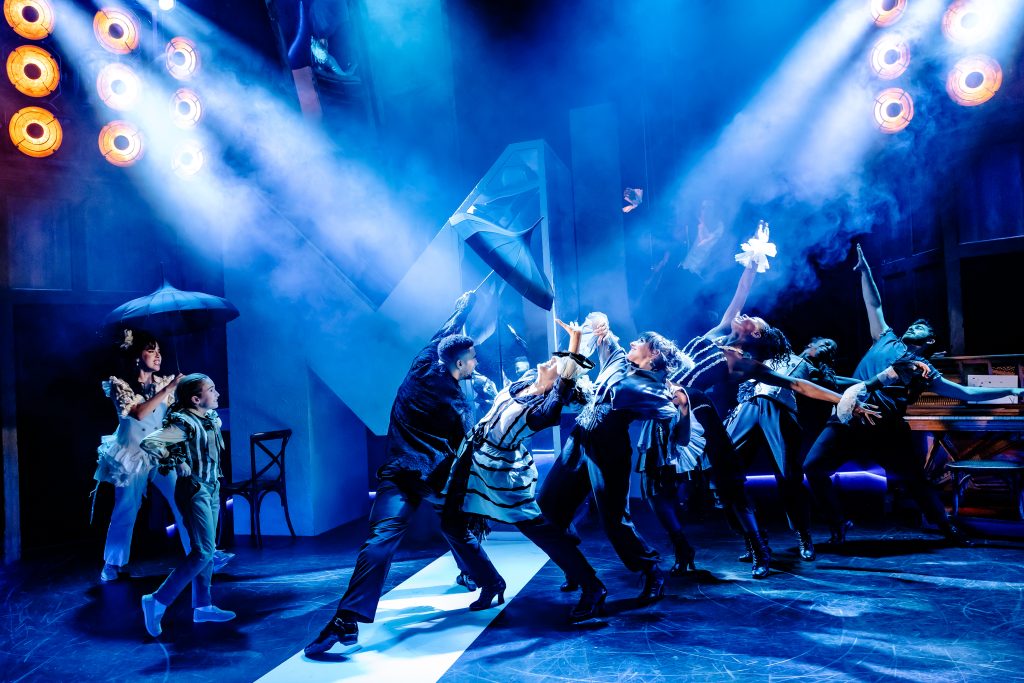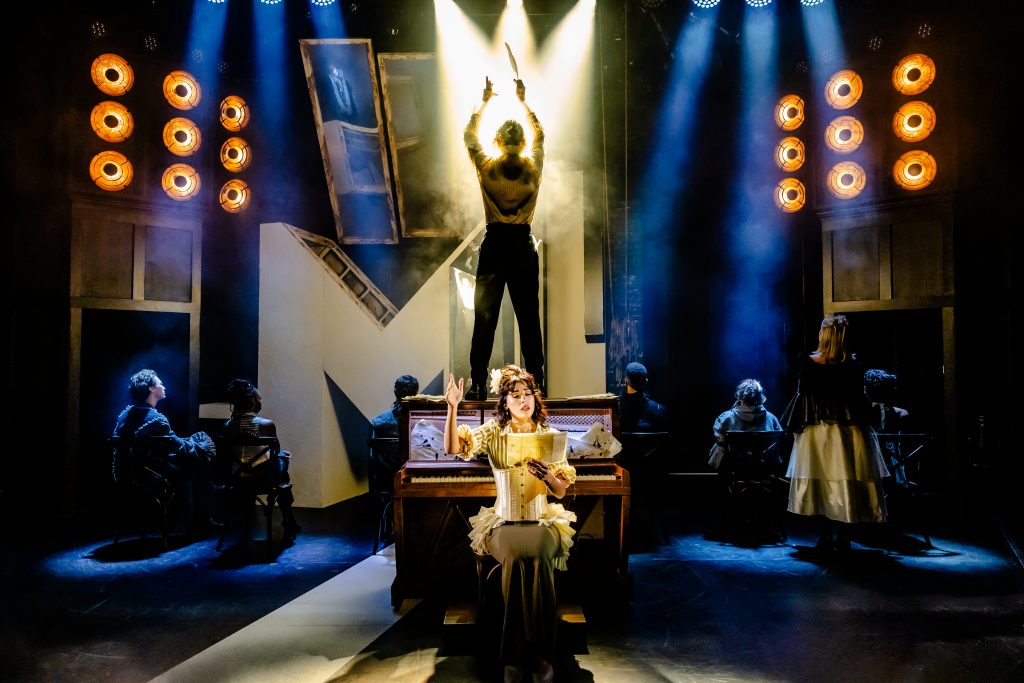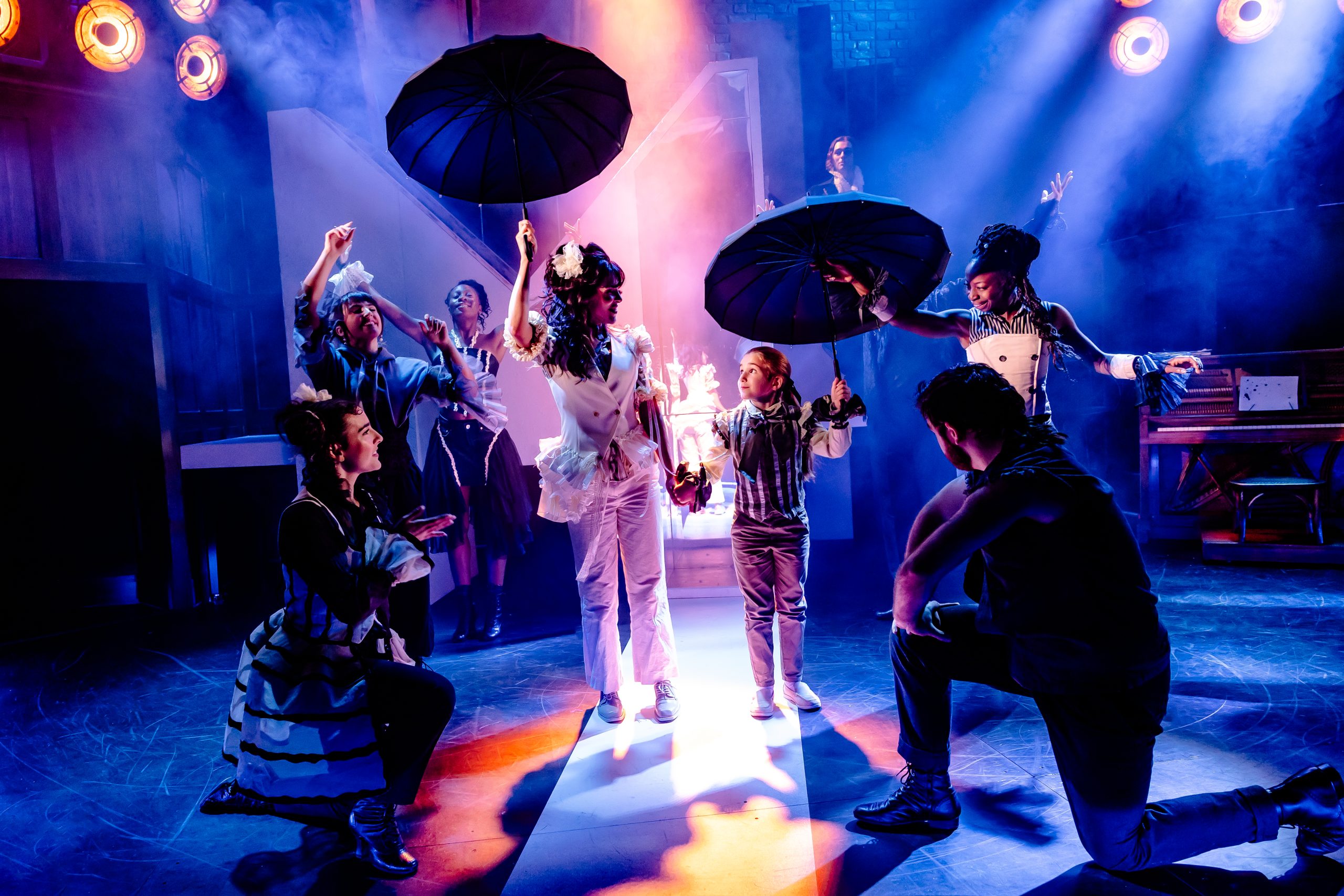The Other Palace’s latest offering, Saving Mozart, arrives with ambitious intentions and a stellar cast but ultimately delivers a superficial exploration of one of history’s greatest composers. While the production boasts incredible performances and impressive choreography within the venue’s notably tiny space, it struggles to create the emotional resonance that great musical theatre demands.
The phenomenal cast carries this production admirably. Aimie Atkinson brings depth and complexity to Nannerl, Mozart’s musically gifted sister, while Jack Chambers captures Mozart’s genius and volatility with compelling intensity. Jordan Luke Gage proves particularly captivating as Salieri, oozing envy and charisma in a performance that crackles with menacing energy. The entire ensemble works magnificently within the constraints of the venue’s reduced stage space, making what could have been a cramped production feel dynamic and alive.
The choreography by Taylor Walker deserves special recognition. Despite working on what feels like the smallest stage in London theatre, the blocking and movement are nothing short of incredible. The Hamilton-esque choreography features dancers weaving between chairs and tables, lifting furniture around the stage with precision and grace that transforms limitations into strengths. When Mozart’s mother dies, the audible slowing heartbeat accompanied by the ensemble’s movement creates one of the production’s most effective dramatic moments.

Unfortunately, the musical itself struggles to live up to its talented performers. The composer attempts a fusion of Mozart’s classical compositions with modern rock, but the results feel forced rather than inspired. The opening number ‘Amazing Amadeus’ immediately signals trouble with its awkward spelled-out pronunciation of ‘Mozart’ with an American ‘Zee’ rather than an English ‘Zed’, setting a tone of musical confusion that persists throughout.
Of the 23 songs in the production, only two or three prove genuinely catchy or memorable. ‘Watch Me’ stands out with its compelling lyrics about writing symphonies, and ‘She Just Doesn’t Know It Yet’ offers some genuinely engaging moments. However, most of the score confuses loud vocal projection with memorable melodies. The songs lack the emotional punch needed to connect with audiences, leaving me impressed by the performers’ vocal abilities but unmoved by the material itself.
The book raises intriguing questions about art, gender, and social expectations but handles them with frustrating superficiality. Issues like whether music belongs to royalty or the masses, whether women should compose or marry respectably, and whether one should marry for love or position are introduced then quickly abandoned without meaningful exploration.
The production attempts to inject contemporary morality into the historical narrative, particularly around Nannerl’s story as a virtuoso musician who must abandon her art upon reaching marriageable age. While this could provide powerful commentary, the execution feels heavy-handed rather than nuanced.

Some narrative choices border on bizarre. Young Mozart is inexplicably played by a girl with no apparent dramatic purpose, and there’s an uncomfortable undercurrent of sexual tension between Mozart and his sister (with far too much long eye contact) that culminates in his creepy declaration that “My inspiration was you”. Meanwhile, Mozart’s father receives what may be the longest death scene of a minor character in theatrical history.
The production’s technical elements largely succeed. Justin Williams’ set design makes clever use of the limited space, while Ben Jacobs’ lighting creates atmosphere effectively. The costumes by Julia Pschedezki serve the production well, and the overall visual presentation maintains professional standards throughout.
The show’s strength lies almost entirely in its cast. Every performer gives a committed, high-energy performance, with excellent vocals and choreography throughout. But a strong cast can only go so far with material that doesn’t fully land.
In the end, Saving Mozart ticks many boxes. It has an ambitious concept, sharp staging, and a hugely talented ensemble. But it struggles to leave an emotional impression, and the score lacks the memorability a musical needs to survive. Despite flashes of brilliance, it doesn’t fully succeed.


